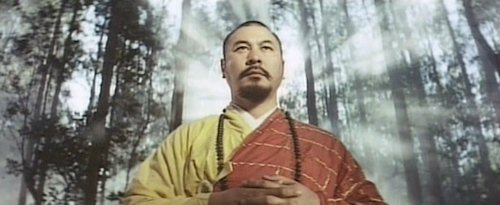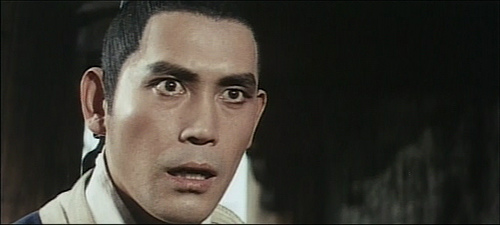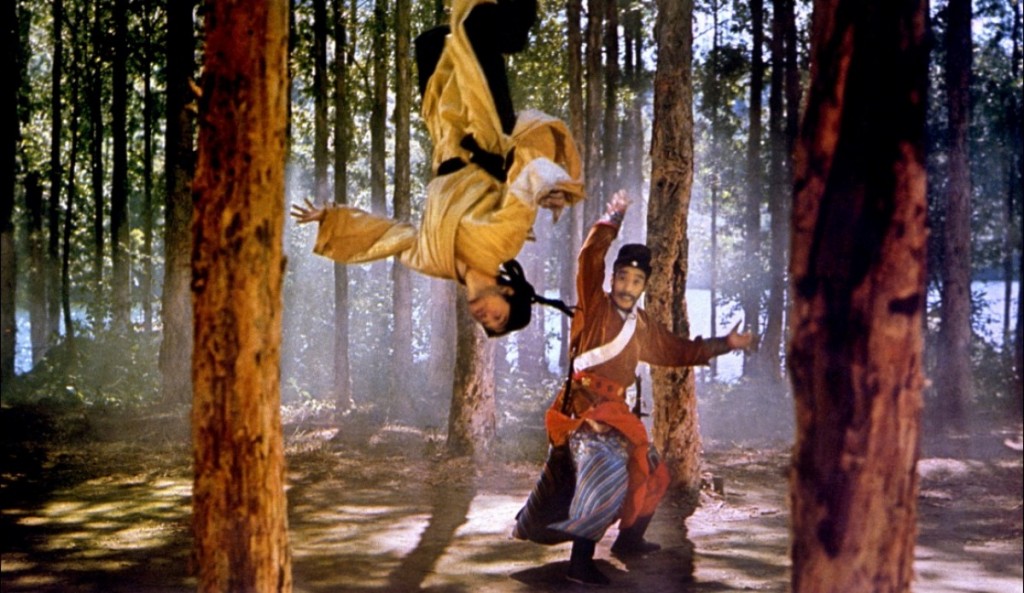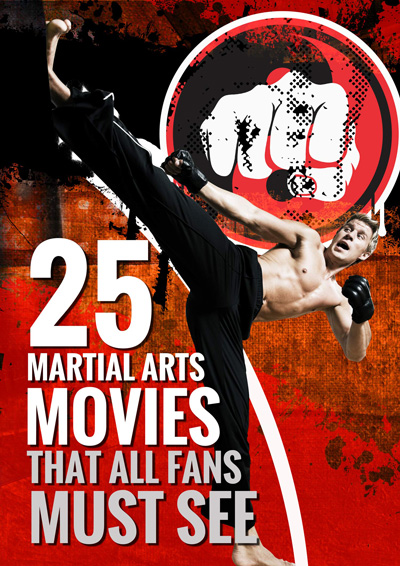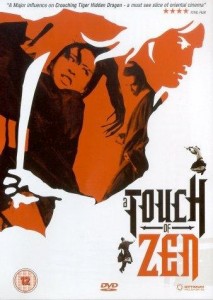 Different – a word to describe the movie A Touch of Zen.
Different – a word to describe the movie A Touch of Zen.
Running close to 3 hours, it takes a great deal of time and attention to fully soak up this movie. There’s some decent enough fights (for it’s time), and heavily spiritual themes that make it stand out as film which can be interpreted in various ways; being very thought provoking.
You’ve got Ku – an artist who is very content with what he has and isn’t ambitious in any way – despite his mother’s constant nagging to get married and take the test to become a government official.
Ku meets a girl named Yang who lives near by.
It turns out Yang is being pursued by the government and has been sentenced to death after her father (who was doing the right thing of course and is innocent! ) made enemies with a powerful man named Eunuch Wei. Ku and Yang become friends and end up on the run together with her two Generals. Together they try to evade capture and take down the corrupt Eunuch Wei.
Themes of Buddism
While the movie begins being pretty straight forward, it goes on to introduced some monks and their Abbot Hui. Playing a minor role initially, they become a bit more major toward the end of the film.
Throughout the movie the monks seems to travel about protecting the land of Buddha from violence – by neutralizing conflicts with their superior martial arts skills.
While the rest of the movie seems to run parallel to the activities of the monks, they show up after Yang leaves Ku to become a nun. After Ku finds a baby while approaching the monastery (looking for Yang) – the child of himself and Yang. The monks then protect Ku and the child from capture and become the main fighters against the Eastern Commander in Chief Hsu.
Upon being attacked by Hsu, Abbot Hui is injured and bleeding Golden Blood. Hsu then begins to hallucinate, killing his men before finally killing himself. The movie then ends with Yang stumbling toward Abbot Hui – who has the sun shining around his head like a Halo.
This symbolic representation of Enlightenment (the halo, bleeding gold blood) can be interpreted in different ways. One being a plot point where a monk reaches enlightenment – but the question is why?
The viewer can really take it in any way. In Buddhism, enlightenment is when a Buddhist discovers the truth about life (thank you wikipedia!). So my next thought would be that Hui learned the truth about life, based on some events of the movie – once again, like all good art it is open to interpretation.
Ku
Ku himself starts out as the perfect example of the Buddhist philosophy. He is an artist who has studied for knowledge and is content with what he has since he and his mother have everything they need. Throughout the movie though, through helping Yang, he draws upon his knowledge of Military Strategy to demoralize the soldiers after them (a strategy mentioned in Sun Tzu’s Art of War).
After that he becomes a bit different, walking around laughing at the success of all of his weapons and is seemingly a changed man. It’s then the Yang leaves him and goes to the Monastery.
A perfect example of a man loving peace, then changing his ways to having a love of War and conflict (not a Buddhist trait).
The Action and Martial Arts
The Trampoline – popular as shit back in the early 70’s.
At least that’s the impression I got – the amount of incredible jumps I saw crammed into some of the end fights had me thinking that the film makers just loved trampolines! But the fights weren’t half bad. Lots of sword work performed to a decent standard that is reminiscent of the quality of action in China’s future (after the film – 1970’s onward).
The shooting style and pace was done well, unlike many movies the pace and rhythm of the fights wasn’t so even but seemed more natural.
The most exciting to watch were the monks – totally cool and collected they effortlessly deflect and defeat any attackers as they would a child – was thrilling to see.
There was some Martial Arts talent in this movie – with Jackie Chan doing a little stunt work, as well as an appearance by a young Sammo Hung. Even Ying-Chieh Han who played the big boss in..uh, The Big Boss (with ‘the little dragon’ Bruce Lee) played the Eastern Commander in Chief.
Would I Recommend it?
It’s a movie that is full of spiritual themes and deep thought told very symbolically – a true classic of cinema. But as a martial arts film? Not bad, not fantastic.
Buddhism and martial arts work well together but are still very separate things in my opinion.
If you love movies that have deep philosophical meaning, you may enjoy this. Action junkies may not like it so much.
It’s On DVD –
Region 1 (US & Canada)
A Touch of Zen on DVD![]()
Region 2 (UK, Germany, Europe, etc)
A Touch Of Zen on DVD![]()

